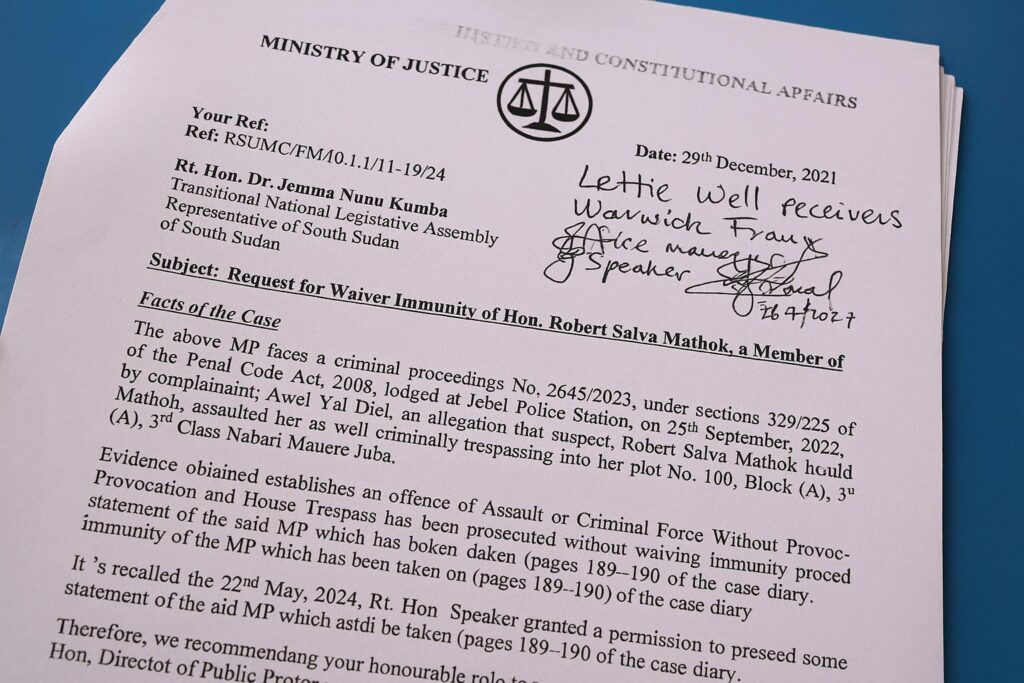Immunity Lift Sparks Legal Drama
On Tuesday, South Sudan’s Transitional Legislative Assembly voted to lift MP Robert Anei Salva Mathok’s immunity, clearing the path for a criminal case alleging assault and trespass against fellow lawmaker Amel Yak Diel (Radio Tamazuj).
Justice Minister Wek Mamer Kuol requested the vote in June, and legislators from several parties agreed that immunity covers only civil matters, not serious criminal allegations.
Land Row Behind the Tussle
The dispute traces back to 2023, when Yak accused Anei of forcibly entering contested land linked to Rock City Hotel in Juba, an asset Anei manages for his late father’s estate.
Anei insists his family company holds a valid agreement with businessman Solomon Chaplain Lui, maintaining that no rival claim exists and denying personal involvement in any altercation on the site.
Defamation Counterpunch Looms
Speaking outside parliament, Anei declared readiness to appear in court yet vowed to file a defamation suit against Yak, arguing that the accusations “spoiled my name and assassinated my character.”
He questions why the assembly’s legal department has not given him a case number, contending that early dialogue could have avoided the public spectacle now unfolding.
Parliamentary Procedures in Focus
Article 67 of the Transitional Constitution protects lawmakers from prosecution without the speaker’s consent, yet permits the house to waive immunity for serious offences. Tuesday’s vote exercised that clause, underscoring institutional checks within South Sudan’s fragile political architecture.
Opposition legislator Gatwech Lam, whose immunity was also lifted, remains in National Security custody over separate charges of crimes against the state, further testing the boundaries of legislative privilege.
Observers Weigh In on Political Climate
Political analyst James Okuk notes that the assembly’s decision “signals growing confidence in judicial processes, yet also exposes rifts among coalition partners still implementing the 2018 peace accord.”
For young South Sudanese, the case offers a live lesson in balancing accountability with parliamentary independence, a conversation resonating across African legislatures seeking durable democratic norms.


